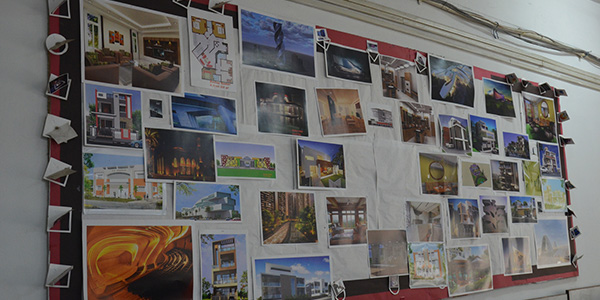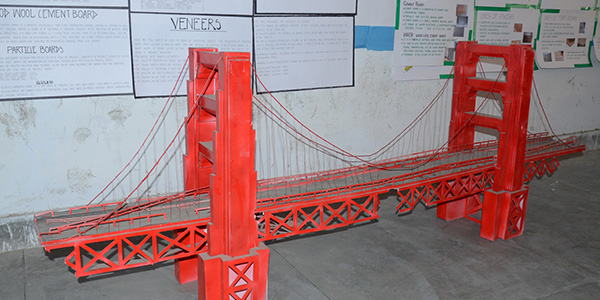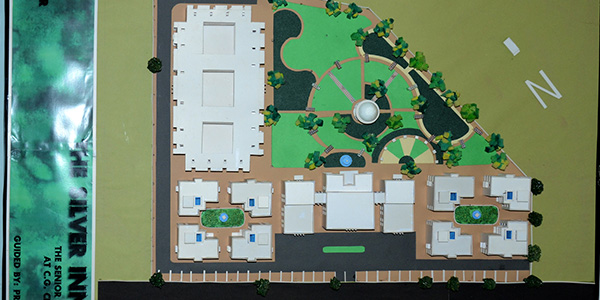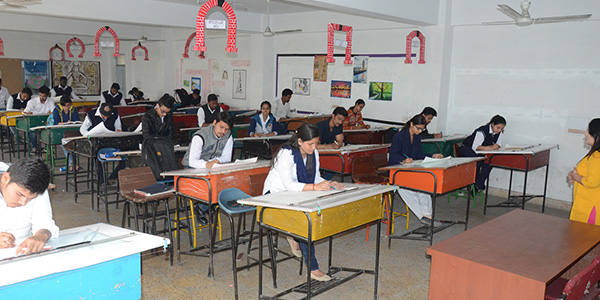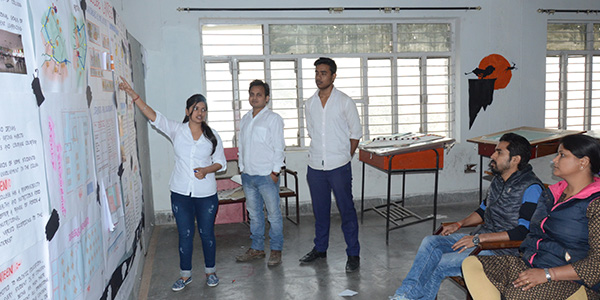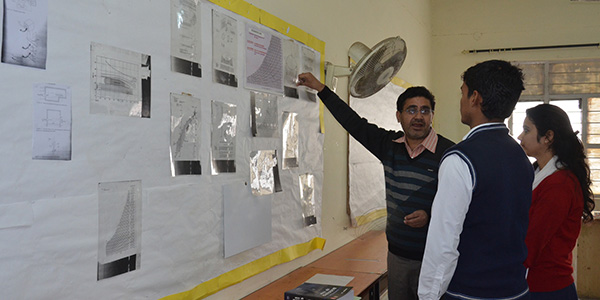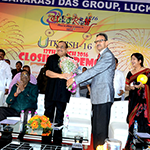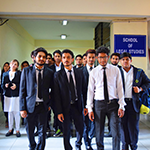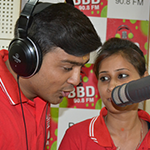TOP ARCHITECTURE AND INTERIOR DESIGN COLLEGE IN LUCKNOW, UP
WHY MASTERS OF PLANNING (URBAN PLANNING)
The specialization in M.Plan (Urban Planning) goals to connect skilled planners who are well trained to rise for the tasks posed till today and for future also assisting community’s and policy makers in confronting with the evolving Urban Planning Concepts. This course intends to produce professional planners who are equipped to rise to the challenges posed today and assist communities, organizations, and policy makers in addressing the present-day problems of settlements and evolve new strategies for improving the quality of life in cities and regions. The students will be trained to address present and emerging issues of cities and regions, through various planning exercises set in varied geographical and socio-cultural locations. Importance of this programme is on procuring practical skills for spatial planning through planning studio exercises and use of GIS. At the Post Graduate level of education, planning is not restricted to the academic curriculum alone. Students are inspired to take part in seminars, meetings and conferences and develop their abilities as a qualified Planner, both through boosting their expertise as well as through development of personality. The programme through the design and delivery of its curriculum activities to develop students as strong personalities capable of providing meaningfully to the planning profession.
Course Details
| School Name: | School of Architecture and Planning |
| Course Length: | 2 Years |
| Session Start | August |
| Course Type: | Full Time |
| Eligibility Criteria : | Bachelor’s Degree(or equivalent) in Architecture/Environmental Engineering/Civil Engineering/Planning OR Master’s Degree (or equivalent) in Geography/Economics/Sociology/Environmental Science/Social Work/GIS/Geomatics/Climate Studies/Development Studies |
| Programme Fee: | Rs. 42,500/- Per Semester |
| Syllabus | Click here to Download |
| Program Outcomes | |
|---|---|
| PO1 | Field Knowledge: Apply the knowledge of Architectural Design, Drawing, Art, Sculpting, Crafts, structural dynamics and statics fundamentals and Laws pertaining to building byelaws and services required in simple and complex building projects, Economical aspects and an architectural specialization to the solution of complex architectural problems. |
| PO2 | Problem Analysis: Conducting case and literature studies and analyze complex architectural problems reaching substantiated conclusions using principles of Architectural design, process of designing (case and literature study, research and conceptualization of designs). |
| PO3 | Design / Development of Solutions: Establishing solutions for complex architectural problems and functional components or spatial arrangements that meet the specified needs and wants with appropriate consideration for the public amenities , services, health and safety and the cultural, societal and environmental considerations . |
| PO4 | Conduct Investigations of Complex problems: Use of research based knowledge and research methods including methodology, analysis and interpretation of data, and synthesis of the information to provide valid conclusions. |
| PO5 | Modern Tool Usage: Application of appropriate techniques, resources and modern architectural tools including BIM and CADD oriented modeling to complex architectural, structural and construction activities with an understanding of its advantages and disadvantages . |
| PO6 | The Architect, Planner and Society: Application of contextual knowledge to assess societal, health, safety, legal and cultural issues and the consequent drafting of proposals relevant to the professional practice. |
| PO7 | Environment and Sustainability: Understanding the impact of the professional field solutions in societal and environmental context and demonstrate the need for sustainable development and applying the same thereof. |
| PO8 | Ethics: Apply ethical principles and commit to professional ethics and responsibilities and norms of the professional practice, as prescribed and regulated by regulatory bodies. |
| PO9 | Individual and Team Work: To effectively function as a professional individual and as a member or team leader in diverse situations and in multidisciplinary settings. |
| PO10 | Communication: To communicate effectively with the professional community and stake holders and with society at large. Be able to comprehend and write effective reports documentation. |
| PO11 | Project management and finance: To demonstrate knowledge and understanding of profession, and management principles and apply these to practice to one’s own work, as a member and leader in a team and to manage projects in multidisciplinary environments. |
| PO12 | Life-long learning: To recognize the need for learning and develop an ability and skill to engage in a learning process in the broadest context of technological change in professional and technological realm. |
| Program Specific Outcomes | |
|---|---|
| PSO1 | To prepare students in the skills of analyzing the physical, social, cultural, economic and ecological dimensions of urban & regional settlements, comprehending their problems and evolving measures to address the issues and emerging challenges in a planned manner. |
| PSO2 | Focus on various forms of planning processes and exposure to new techniques such as GIS and live case studies related to comprehensive and micro level urban development issues and problems related to various cities, town and regions in the country. |


